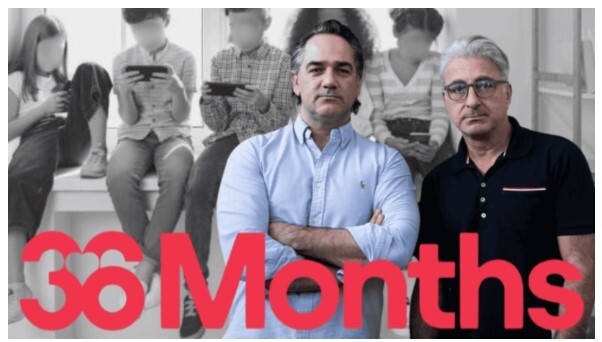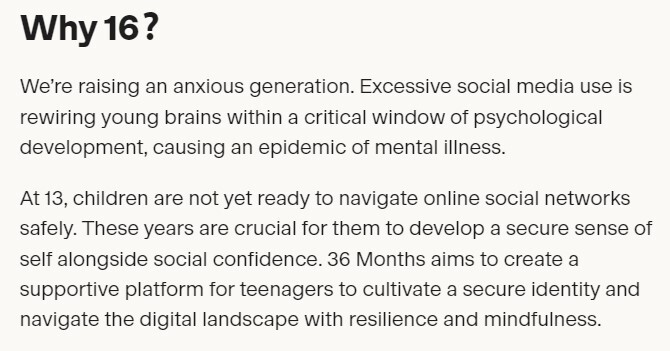Raising the age of social media use from 13 to 16
Lara Leahy
12 June 2024, 9:00 PM
 People are recognising the need for more stringent control over youth having access to social media.
People are recognising the need for more stringent control over youth having access to social media.36 Months is a national petition to raise the age of access to social media from 13 to 16. There is concern about access and use and the residual effects of such an influential pastime on young people's health and well-being.
Michael Wipfli (Wippa), co-host of the Fitzy, Wippa & Kate Ritchie breakfast show on Nova 96.9 Sydney, and Rob Galluzzo, founder of film production company FINCH, are behind the movement.

(Michael Wipfli and Ron Galluzzo)
Rob Galluzzo, father of two, told LBB Online, “As parents, we want to give our kids the best shot at becoming resilient and independent adults.
“The prevalent issue of excessive social media use contributing to heightened anxiety among teenagers is a growing concern for many parents and educators.
“The aim of 36 Months is to provide a safer environment where kids can foster a secure identity and healthy emotional development by raising the threshold of social media citizenship.”

(The 36 Months mission statement)
The objective is to remove the onus from parents to decide, negotiate, and compete with the gargantuan marketing machines that are social media platforms. They are aiming to make the government legislate an age increase and provide enforcement regarding children or anyone's need to prove their age.
Many politicians, personalities and people are signing the petition, and discussions by changemakers are underway. Concerns include the maturity of young people to utilise such an impressionable means of communication and how that affects their self esteem.
Danger to mental health is such that the feeling is that the age restriction should be enforced like cigarettes or alcohol. This would apply to platforms like Facebook, Instagram, TikTok, Snapchat and YouTube.
Kerry-Anne, a local mother of two boys fast approaching the age of 13, said, “I’m already terrified of them having access to social media. It’s hard enough controlling social interaction on things like social gaming. Even bullying in schools is unmanageable for some.
“Messenger Kids (which has parental control options) is hard to monitor content going back and forward between my children’s friend groups. Some parents do not even monitor their children so have no idea what’s happening online.
“To be honest, I end up monitoring other children’s chats with my kids just to try and do damage control for any potentially nasty words, comments that can be misconstrued as well as exposure to adult themes.”
Monitoring everything that goes on is very difficult, and there is the problem of images that are not as easy to curb.
“Kids can screenshot social chats and then send a ‘photo’ onto groups outside that chat. You loose control regardless. Kids share and share. It goes on. It’s so bloody dangerous and scary.”
Kerry-Anne recognises the need to manage what goes on at a higher level, “I’m 10000% for restrictions and stronger controls for all on social media. Gaming. YouTube. TikTok etc.
“Social media and devices are just as dangerous as giving a teenage kid keys to your car without them knowing how to drive.”

Wippa told Fear and Greed, a business podcast, “There's two parts to it. The first part is if we look at what goes on in the adolescent years and how challenging that is, you throw social media and smart algorithms into the mix, and you have vulnerable kids that are trying to discover themselves. That's a dangerous play.
“The other side of the coin is to consider 36 Months, three years to give back. What can we do in those three years if the kids aren't on social media? And what skills can they acquire and learn knowing that if they choose to get onto social media at the age of 16, they can be armed with everything to expect and know what to do and how to handle themselves if required.”
You may see people posting photos of their 13 year old selves on socials in support of the movement. If you would like to know more or sign the petition, have a look at the 36 Months website.

